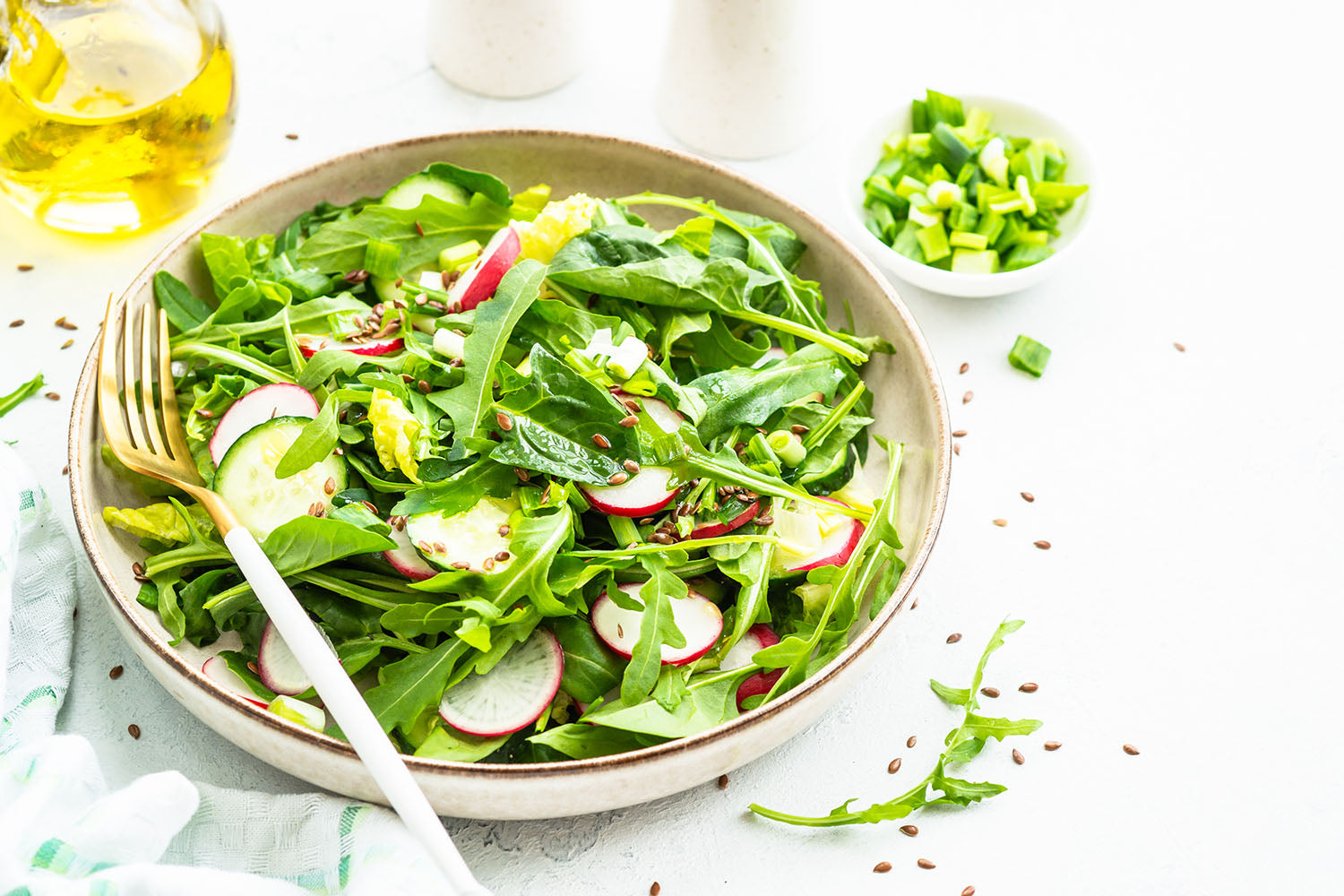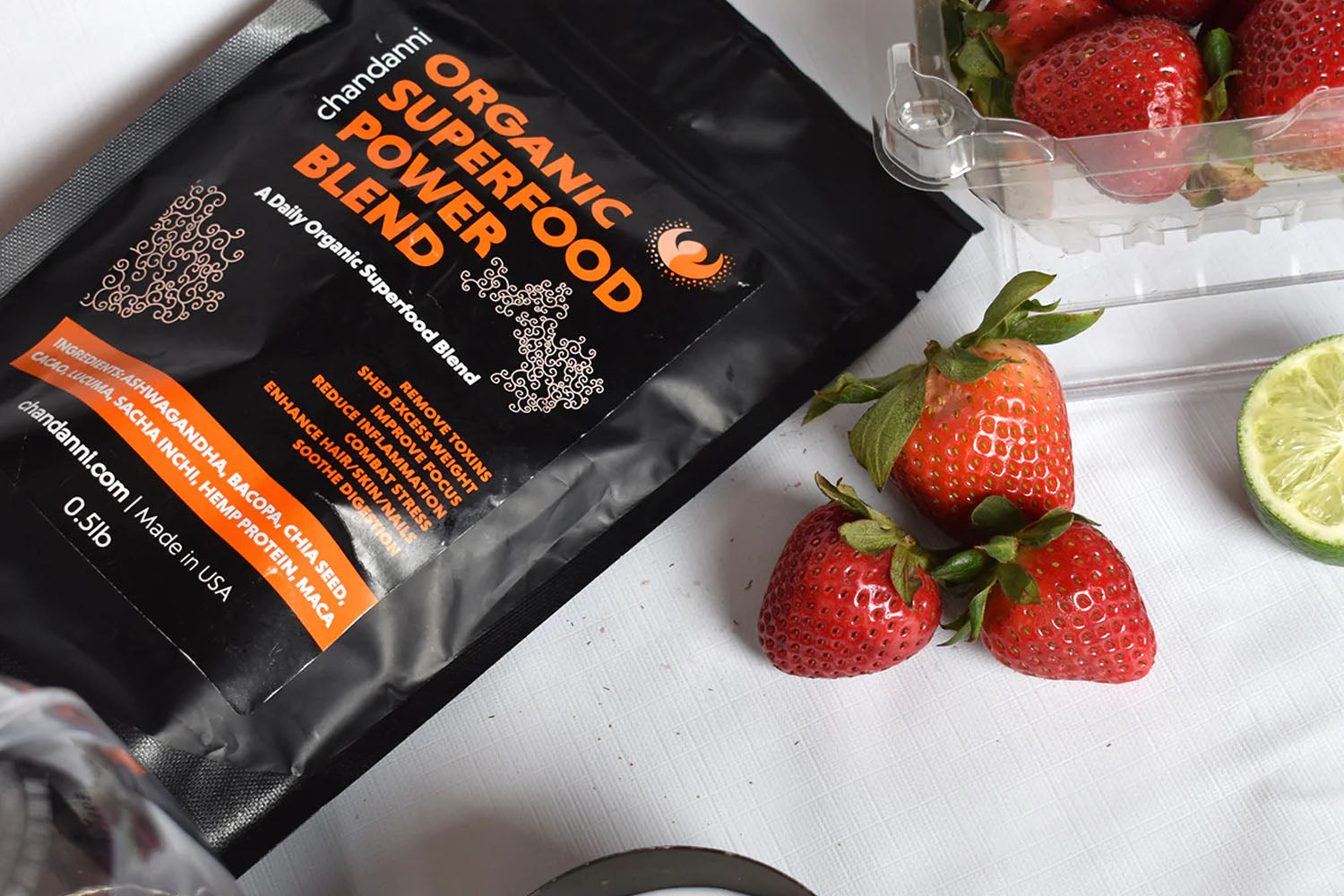
10 Hormone Balancing Foods for Women
Sania TariqIn pursuit of optimal well-being, women often encounter the intricate world of hormonal health. Hormones play an important role in a woman's physical and emotional equilibrium. Imbalances can lead to various health challenges.
This comprehensive blog will delve into ten hormone balancing foods that can empower women to take control of their health naturally. These dietary choices and lifestyle considerations can offer a holistic approach to hormonal harmony, promoting overall vitality and well-being.
Understanding Hormonal Imbalances
Hormonal balance is a cornerstone in the intricate tapestry of women's health. Hormones orchestrate a symphony of bodily functions, regulating everything from mood and metabolism to reproductive health and immune system strength. However, this intricate dance can sometimes go awry, leading to hormonal imbalances that can have far-reaching consequences.

Common Hormonal Imbalances in Women Include; [1]
- Estrogen Dominance: A surplus of estrogen relative to progesterone, which can lead to heavy periods, mood swings, and fertility issues.
- Thyroid Disorders: Conditions like hypothyroidism or hyperthyroidism can disrupt metabolism, energy levels, and weight management.
- Polycystic Ovary Syndrome (PCOS): A hormonal disorder characterized by irregular periods, ovarian cysts, and elevated levels of androgens.
- Adrenal Fatigue: Chronic stress can lead to imbalances in cortisol production, affecting energy, sleep, and stress resilience.
- Insulin Resistance: Linked to conditions like Type 2 diabetes, this imbalance affects blood sugar regulation and can lead to weight gain.
- Low Progesterone: Can cause irregular menstrual cycles, mood swings, and difficulty conceiving.
The Role of Diet in Hormone Balance
Diet is a fundamental factor in the intricate dance of hormonal equilibrium within a woman's body. The consumed foods can promote or disrupt this balance, influencing overall health and well-being.
Nutrient-dense choices such as organic superfoods can give the body essential building blocks for hormone production and regulation. Conversely, poor dietary choices can contribute to hormonal imbalances, leading to health issues. [2]
Top 10 Hormone Balancing Foods for Women
Hormonal balance is essential for women's well-being, impacting everything from mood to reproductive health. While various factors can influence hormones, diet plays a crucial role. Incorporating hormone balancing foods into your daily meals can help support and regulate your hormonal health. [3]
Here are ten powerhouse foods that every woman should consider including in her diet;
Food 1: Cruciferous Vegetables
Cruciferous vegetables like broccoli, cauliflower, and kale are rich in compounds known as glucosinolates. These compounds have been shown to support estrogen metabolism, helping the body maintain a healthy balance of this hormone.
Estrogen dominance is a common issue in women, leading to various health problems, including PMS and fibroids. Including more cruciferous vegetables in your diet can assist your body in detoxifying excess estrogen and promoting hormonal equilibrium.

Food 2: Legumes
Legumes like black beans, chickpeas, and lentils are great choices for plant-based energy and fiber. They also contain phytoestrogens, compounds that can mimic the action of estrogen in the body. Phytoestrogens can benefit women experiencing menopausal symptoms, as they may help alleviate hot flashes and mood swings by providing a natural source of estrogen-like activity.
Food 3: Flaxseeds
Flaxseeds are a nutritional powerhouse rich in lignans, fiber, and omega-3 fatty acids. Lignans are particularly beneficial for women as they have been shown to have anti-estrogenic properties, which can be helpful in conditions like estrogen-sensitive breast cancer. Flaxseeds can also support regular menstrual cycles and alleviate symptoms of PMS. To incorporate flaxseeds into your diet, add them to smoothies, oatmeal, or plant-based yogurt.

Food 4: Avocado
Avocado isn't just a tasty treat; it's also abundant in essential vitamins, minerals, and healthy fats that play a vital role in hormone production and equilibrium. Specifically, avocados are abundant in monounsaturated fats, which can contribute to the well-being of your adrenal glands and ovaries, which are pivotal in regulating hormones. Moreover, avocados are a rich source crucial for your overall health.
Food 5: Berries
Berries like blueberries, strawberries, and raspberries are antioxidant powerhouses. Antioxidants help reduce inflammation and oxidative stress in the body, which can negatively impact hormonal balance. Eating various berries can give your body important nutrients and help keep your hormones healthy.

Food 6: Nuts and Seeds
Nuts such as almonds, walnuts, and seeds like chia and pumpkin seeds are rich sources of healthy fats, vitamins, and minerals. They also have protein and fiber, which makes them a healthy and delicious food choice. Nuts and seeds provide hormone-producing lipids and nutrients for overall health.
Food 7: Leafy Greens
Leafy greens like arugula, spinach, and Swiss chard contain antioxidants, vitamins, and minerals. They are particularly rich in folate and vitamin B6, essential in hormonal balance. These greens can support the health of your liver, where hormones are metabolized and detoxified, helping to maintain hormonal equilibrium.

Food 8: Plant-Based Yogurt
Plant-based yogurts made from soy, coconut, or almonds can have many probiotics, which are good for your gut health. Healthy gut microbiomes help the body metabolize and eliminate hormones, which affects hormonal homeostasis. Adding plant-based yogurt to your diet can help your gut microbiota become more complex and healthy, which is good for your hormones.
Food 9: Turmeric
Curcumin, which is found in turmeric, is a strong anti-inflammatory ingredient. Chronic inflammation can throw off the balance of hormones and worsen several health problems, such as insulin resistance. Adding turmeric to your food can help your body's inflammation and keep your hormones healthy overall.

Food 10: Tofu
Tofu is a versatile plant-based protein source made from soybeans. It contains phytoestrogens, known as isoflavones, which can help modulate estrogen levels. For women experiencing menopausal symptoms or dealing with estrogen imbalances, incorporating tofu into their diet may provide relief and contribute to hormonal harmony.
Incorporating Hormone Balancing Foods into Your Diet
Balancing hormones through diet requires mindful choices and consistent effort. [4] Here are practical tips to seamlessly integrate hormone-balancing foods into your daily meals;
- Plan Your Hormone Balancing Meals - Strategically include these best hormone balancing foods in your meal planning.
- Smoothies - Blend berries, flaxseeds, and leafy greens for a hormone-boosting morning smoothie.
- Salads - Add nuts, seeds, and avocado to your salads for a nutrient-packed boost.
- Snacks - For convenient and healthy snacks, keep nuts, berries, or smoothies on hand.
- Cooking - Use turmeric and tofu in stir-fries or curries for a flavorful twist.
- Recipes - Explore quick recipes incorporating these foods to keep your meals exciting and nutritious.
- Variety - Aim for a diverse diet to cover all essential nutrients
Additional Tips for Elevating Hormonal Health

Consider incorporating a Women's Superfood Blend into your diet for an extra boost in supporting hormonal balance. This specially curated blend combines nutrient-dense ingredients like maca, ashwagandha, and spirulina, known for their adaptogenic and hormone-regulating properties.
Integrating this blend into your daily routine can further enhance your journey towards hormonal harmony and overall vitality. Remember, small changes in your diet can significantly improve hormonal well-being and overall health.
Lifestyle Factors for Hormone Balance
Achieving and maintaining hormonal balance extends beyond just dietary choices; lifestyle factors also play a crucial role. [5] Here are essential aspects to consider;
- A well-rounded exercise regimen can help control hormones, reduce stress, and manage weight in addition to hormone-balancing meals. Combining cardio and power training is good for your health as a whole.
- Stress management is key. Mindfulness activities like meditation, yoga, and deep breathing can restore hormonal balance after chronic stress.
- Ensure enough sleep. Sleep helps regulate hormones like cortisol, insulin, and growth hormone.
- Prioritize adequate sleep. Quality rest supports hormonal health, regulating hormones like cortisol, insulin, and growth hormone.
- Hydration is key. Proper hydration supports metabolic processes essential for hormonal balance, making it a vital component of your best hormone balancing foods regimen.
Incorporate these lifestyle factors alongside hormone-balancing foods for comprehensive well-being.
Conclusion
Incorporating hormone balancing foods into your diet and adopting a mindful lifestyle can empower women to achieve and maintain hormonal harmony. Women can enhance their overall health and vitality by making informed choices and embracing holistic well-being. Remember, consulting a healthcare professional for personalized guidance is always a wise step on this journey to hormonal balance.
FAQs
- Which foods balance hormones?
Foods like cruciferous vegetables, flaxseeds, and berries can help balance hormones.
- How do I balance hormones naturally?
Balancing hormones naturally involves a balanced diet, exercise, stress management, and adequate sleep.
- How do I balance my hormones quickly?
Hormones typically take time to rebalance; quick fixes are rare. Consistency in healthy habits is key.
- What is the best breakfast for hormone balance?
A breakfast with protein (e.g., lentils, beans) and fiber-rich foods (e.g., oats, fruits) can support hormone balance.
References
[1] https://www.healthline.com/health/hormonal-imbalance
[2] https://www.mdpi.com/journal/nutrients/special_issues/diet_hormones
[3] https://www.healthline.com/nutrition/balance-hormones
[4] https://www.ncbi.nlm.nih.gov/pmc/articles/PMC6873279/
[5] https://atlashealthmedicalgroup.com/the-silent-struggle-understanding-hormonal-imbalances-in-men/




